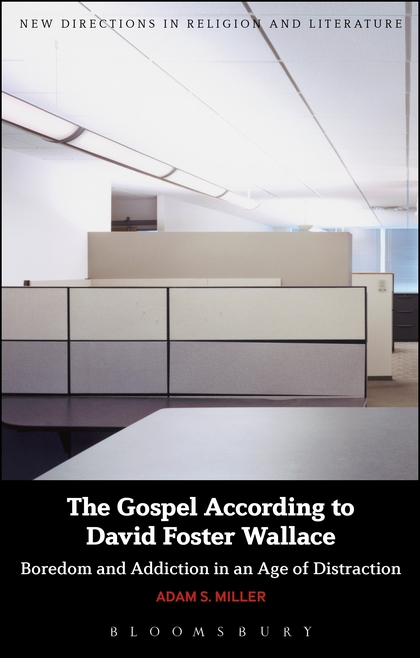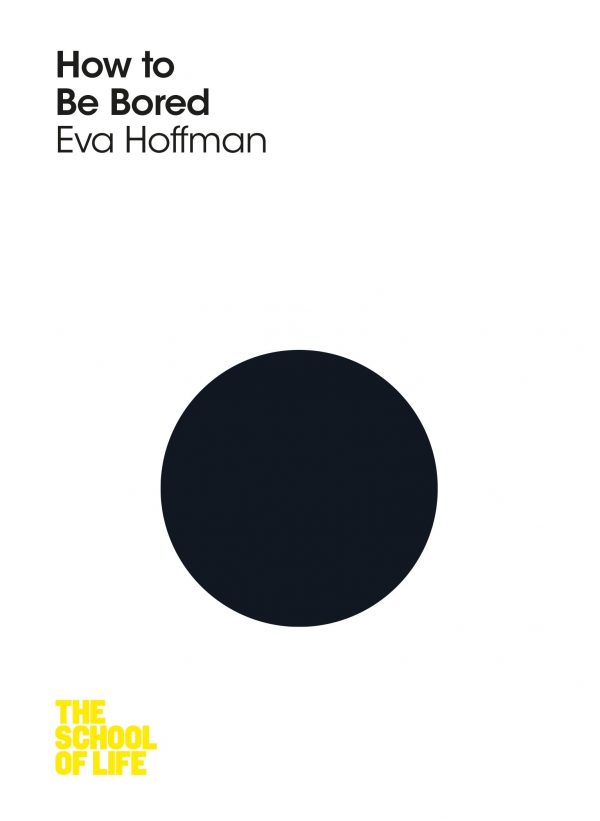The phenomenon known as the “Boredom Boom” was first actualized in the 2000s, when multitudes of personal essays, books and think-pieces were penned, reacting to the shortened attention spans created by our computers, tablets and smartphones. Since then, many more books have been published about conquering the boredom bug, as scholars from philosophy, psychology, art history, sociology and history—among others—have all contributed their two cents on the topic. It seems as if boredom is suddenly fashionable. And the reason so many new texts can be published on the topic is because there are hundreds of different kinds of “boredom,” so many, in fact, that it has become a joke in academic communities: is it possible that boredom will soon itself become overexposed, and therefore, boring?
If you’re interested in examining our culture’s obsession with boredom or if you’re just bored yourself, here are seven titles worth giving a read:
1. Bored and Brilliant: How Spacing Out Can Unlock Your Most Productive and Creative Self by Manoush Zomorodi
In 2015, Manoush Zomorodi, host of WNYC’s podcast Note to Self, conducted a week of experiments with her tens of thousands of listeners, encouraging them to unplug their devices, get bored and jump-start their enhanced creativity. Bored and Brilliant chronicles the experiment and features interviews with experts and listener stories to show us how to rethink our gadget use to live better and smarter, using boredom’s hidden benefits to become our most productive and creative selves.

Source: Amazon
2. Boredom Studies Reader: Frameworks and Perspectives Edited by
Yes, I know this title doesn’t sound very exhilarating, but the Boredom Studies Reader is an essential anthology of contemporary research that examines the experience of boredom as a quintessential condition of modern life. The essays included focus on both the historical and theoretical potential of the condition of boredom, and how it acts as a response to a highly mechanized and urbanized social life.

Source: Amazon
3. The Gospel According to David Foster Wallace: Boredom and Addiction in an Age of Distraction by Adam S. Miller
The Gospel According to David Foster Wallace features a series of short, topic-focused chapters that examine key scenes from Wallace’s novels with explanations of how they contribute to his overall account of what it means to be a human in the 21st Century. Author Adam Miller explores how Wallace’s work investigates first-world boredom and how easy it is to get addicted to distraction (chemical, electronic or otherwise).

Source: Amazon
4. How To Be Bored by Eva Hoffman
How To Be Bored examines the hectic, over-stimulated age we currently live in, how excessive busyness is the norm and the ways in which that effects our mental and emotional lives. Eva Hoffman presents lessons from literature, history and psychotherapy to helps us embrace boredom and find meaning in doing nothing in order to enjoy the richness of both our inner and external lives.
5. Nurture the Wow: Finding Spirituality In The Frustration, Boredom, Tears, Poop, Desperation, Wonder, And Radical Amazement Of Parenting by Rabbi Danya Ruttenberg
Pretty much anyone can tell you that being a parent isn’t easy. The pressures of work and life are relentless; children’s needs are difficult to meet; and parents rarely allow themselves the time and attention necessary to satisfy their own inner longings. However, Rabbi Danya Ruttenberg argues that if we can approach parenting from a different mindset, the work of being a parent can offer solace. Nurture the Wow is rooted in Judaism but also incorporates a wide-range of religious and literary traditions to explain how parenthood can actually be the path to living fully, authentically, and soulfully.

Source: Amazon
6. Play Anything: The Pleasure of Limits, the Uses of Boredom, and the Secret of Games by Ian Bogost
Play Anything suggests filling the mundane aspects of adult life with play—transforming the boring world around us into one of endless possibilities that can help us overcome our daily anxieties. Games appeal to us not just because they are fun, but because they set limitations. Accepting these limitations narrows our focus and creates “fun.” Thus, we can “play anything” by filling our days with attention and discipline, devotion and love for the world as it really is, beyond our desires and fears.

Source: Amazon
7. Yawn: Adventures in Boredom by Mary Mann
Author Mary Mann tells the story of the hunt for a deeper understanding of boredom, and a search through history for the truth about it. This journey has sent her around the globe, meeting an interesting cast of characters, some of which include the modern couples who are disenchanted by monogamous sex, deployed soldiers who seek entertainment and connection in porn; and prisoners held in solitary confinement, for whom boredom is a punishment.

Source: Amazon
You’ll never be bored again after reading these titles… OK, that might not be exactly true, but you’ll at very least have a better understanding of where your boredom derives from and how to harness it to be your most creative self!
YouTube Channel: Talks at GoogleFeatured Image via Jim Datz, New York Times
h/t New York Times




